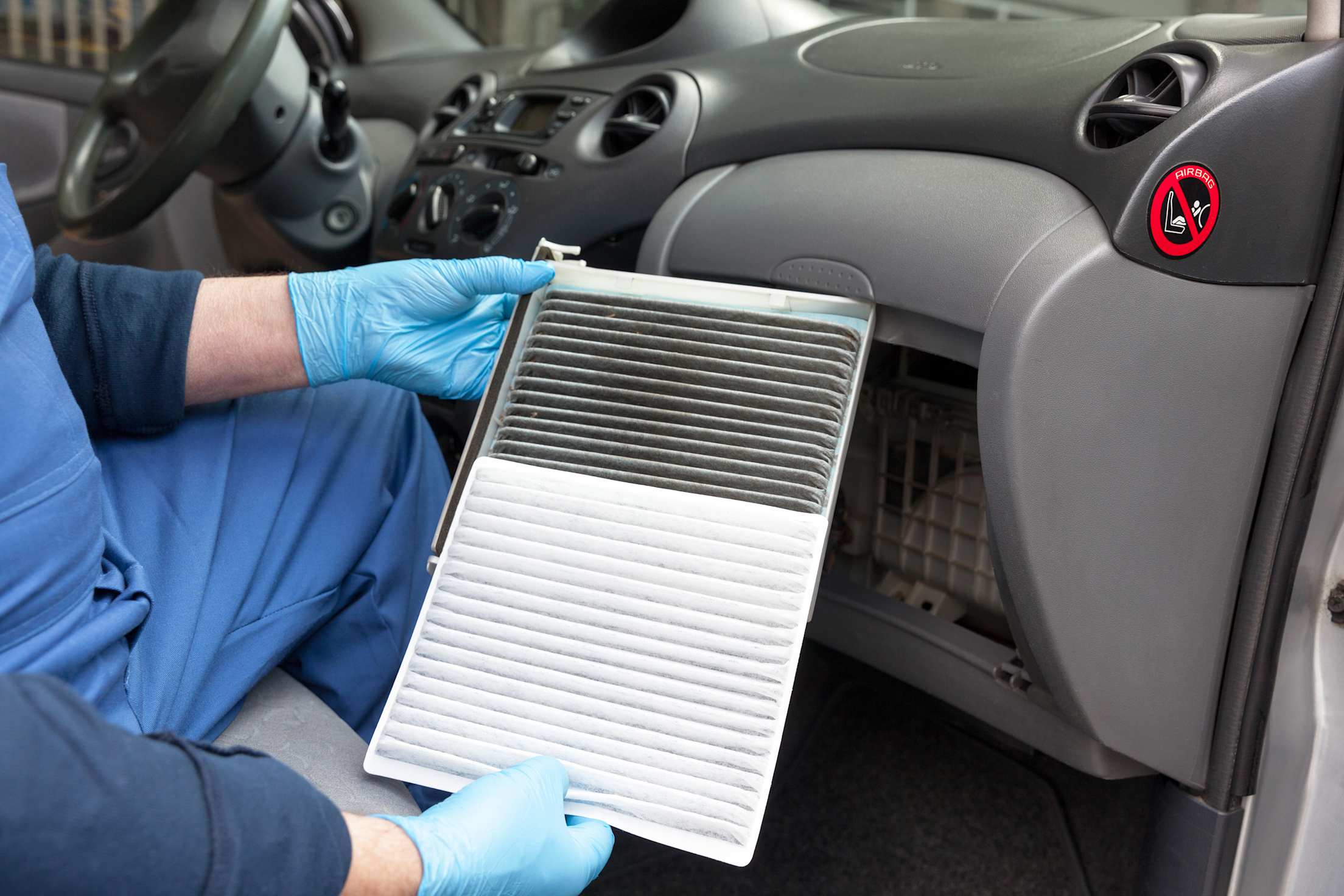
How to Get The Most Out of Your Car’s A/C
Stay comfortable while reducing impact on your fuel economy.

Your air conditioner can make driving in the heat more comfortable, but it comes at a cost. Under very hot conditions, running your car’s A/C can lower your fuel economy by upwards of 25 percent (particularly on short trips), reports the U.S. Department of Energy site FuelEconomy.gov.
But there are things you can do to reduce its impact while staying cool. Follow these tips to get the most out of your car’s A/C while protecting your fuel efficiency.
Find a shady spot to park.
When looking for parking, seek out shade and take proactive measures, such as setting up a sun shade on the windshield to keep warming UV rays out. That way when you return to the car, the cabin isn’t a sauna that requires even more energy to cool.

Roll down the windows first.
If it feels unbearably hot in your car, your first instinct might be to crank up the air conditioning and pre-cool your vehicle before hitting the road. But that’s not an ideal move for fuel efficiency if you have a gas or hybrid car. Unless you are charging an EV and it can draw on the external power, it’s not more efficient to pre-cool with the air conditioner. Plus, your A/C actually works better and will cool the car faster when you’re driving.
“[Instead], when you first get into a hot vehicle, roll down the windows. Then while driving, turn the air on the fresh-air mode to help the hot air escape,” says Travis Mock, vice president, Car Care Arizona, AAA Automotive Repair Centers. Once you get to highway speeds, roll up your windows and switch to A/C. At that point, the added drag from having your windows down may outweigh the potential efficiency savings.
Avoid recirculation with passengers in the back.
The recirculation setting on your air conditioning can make it more efficient because it means the system is cooling already treated air, but there are cases where it’s best to avoid it. One such instance is if you have passengers in the back. “Do not use the recirculation feature if you have rear passengers as this will leave the rear passengers warmer than the front driver and passenger,” says Mock.

Check your cabin air filter.
If your cabin air filter is dirty, the output of air can be limited and make it feel as if your A/C or heating is not working properly. “A worn filter will reduce the volume of air exiting the vents,” says Mock.
Typically, the cabin air filter—located behind the glove box—should be replaced every 15,000 to 30,000 miles (check your owner’s manual for more information). If there are any lingering smells when the system is running or you notice increased dust inside the vehicle, it might be time to change it.
Smart Tip: Replacing your cabin air filter is fairly straightforward and requires few, if any tools, which makes it an approachable DIY project to tackle at home.
Include your A/C system as part of your car maintenance routine.
You likely know that you should check your tire pressure and get an oil change as part of your regular car maintenance, but don’t forget your climate control system too.
“Have the A/C system inspected yearly to assure no leaks are present and the A/C system has the proper amount of refrigerant,” says Mock.
Doing so can also ensure that all the parts that help your A/C function are working optimally so you can stay cool as temps rise. In particular, you want to inspect the condenser. “The condenser is the part of the air conditioning system that releases the heat that is absorbed by the refrigerant into the atmosphere,” says Devin Purcell, technical editor at AutoKnowIt.com. “Over time, bugs, dirt, and other forms of road debris can fill up small passages that allow air to travel through the condenser. This reduces the ability of the condenser to do its job and causes your A/C to not work at its peak efficiency.”
A dirty condenser can impact how it functions and may require cleaning by a professional.
Get quality auto repair service from certified technicians and the brand you trust.